What should I eat for breakfast?
“Fill me up with sugar and watch me crash”
Parents and coaches often ask me “What should my child eat for breakfast?”
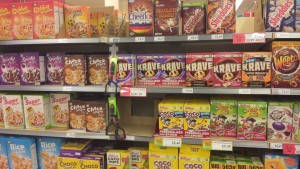
Diabetes starter packs
Eating the a healthy breakfast will aid concentration and help overall health and performance. The recent study on Primary School children in Wales showed that eating breakfast was associated with better SATS scores.
Unfortunately they asserted that breakfast cereals constituted a “healthy breakfast“. Read on and see why this is a big error...
If you are anything like I was, you probably eat the same thing for breakfast 6 days out of 7, and it probably hasn’t changed for the last 5 years. It will most likely involve reaching for a bowl of breakfast cereal.
It is important to eat properly before competing and before studying: breakfast is the best start.
However, eating the wrong thing will lead to rapid increases in blood sugar, followed shortly by an insulin rush and onset of lethargy. This then leads to further cravings throughout the day.
Looking at the Which! report on breakfast cereals, you may as well just eat handfuls of sugar.
3 of the worst offenders for sugar content (or Diabetes starter packs)
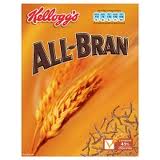
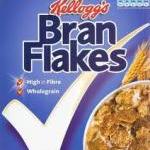
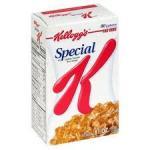
All apparently healthy, and 2 of the guys I was training last week (Jess and Kurtis) said they had these every day with the assumption they were healthy.
Excelsior athletes can see some alternatives for a nutritional breakfast
Otherwise you might like to look at this excellent guide from the NHS on 5 healthy breakfasts.
It is important to know that porridge and muesli were omitted from this report because they are outside of the best sellers. “Is porridge a good breakfast?” is something I get asked every time I do a workshop on healthy breakfasts.
Whilst it is hot and has slow releasing energy, it is low on protein and vitamins. I would add nuts for protein and some fruit too. Wholewheat museli with no added sugar has a good balance. Avoid Alpen which is very high in added sugar.
Making the change to a healthy breakfast
4 years ago when I first read this report I made a determined effort to change what I ate. Four mornings a week involved a mad rush of nappy changing, kids dressing, tidying up and general herding of cats- so it was unrealistic to get a cooked breakfast.
But, I did manage to have Porridge or wholewheat muesli (with no added sugar) using nuts for protein.
The other 3 days a week I had a bit more time and changed what I ate: This included eggs, grilled bacon or peanut butter on toast.
We also deliberately changed the cereals we bought and the nutritional value of the bread to make toast. The whiter the bread, the more refined the flour, the quicker the release of the energy and the less nutritional value it has.
- Switching to wholemeal toast instead of white toast will immediately improve your breakfast.
- Adding some protein/ fat and reducing cereal/ bread content will make it healthier still.
This will require some planning and alternative aisles visited in the supermarket- (a worthwhile investment on my part for me and family). I want to avoid a diabetes endemic in our house.
Now I only eat wholemeal muesli or porridge 1-2 times a week, the rest of the time I include fresh fruit and protein. More recently I have started eating eggs 3-4 times each week. This reflects guidelines on returning to a more early twentieth century diet, low in sugar and refined carbohydrates.
Thanks to Hayley Bond for her research.

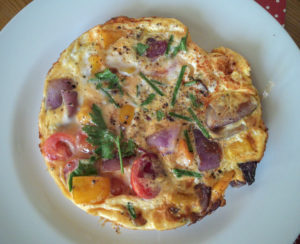
Very well put together. Very interesting James.
Thanks.
really interesting read, think i might need to change breakfast too
Hi James,
Hope you are well.
I have started Roller Derby now, which is great fun!
I have been doing the Roller Derby Workout Challenge, an 8 week programme which started 2 weeks ago. It is a really sensible and healthy diet plan, mixed in with an impressive strength training programme. I was very impressed by it, and really seeing the benefits, alongside 1000 other girls across the world.
It’s really good to see sports (even minority ones) promoting good diet choices and very tough workouts!
http://www.facebook.com/home.php#!/group.php?gid=397034985143
Sorry forgot to put my name on that comment,
Emma.
I find I function best with some protein in the mornings, so often eggs or Pipers farm in exeter do some great grass fed beef and they sell packs of thin slices for sandwiches, so often a plate of those fried in kerrygold, (more omega3) with some left over veg from the night before. I will also usually gulp down about a litre of water with lemon in it between waking and leaving the house. Odd but works for me.
I’m a keen advocate of combining complex carbs with lean protein at every meal – including breakfast. It ensures a slow, steady release of glucose into the bloodstream (avoiding the sugar ‘spikes’ you refer to James). A few combinations include….
For a light breakfast – a full or low fat unflavoured bio-yogurt – with flax, sunflower, pumpkin or sesame seeds (or a combination of all) with a small handful of dried cranberries or unsulphured apricots or fresh berries.
Cold cereal based breakfast (or between meal snack) – rolled oats, grated apple with skin, cinnamon, toasted almonds or cashews (or any nut – get some variety in there!) soaked in almond or rice milk.
Or the hot alternative – rye toast or seeded bread toasted (or any whole GRAIN variety) with softly poached free range egg and some grilled field mushroom.
The first two options can be prepared the evening before and put in a tuppaware and slung in the briefcase or backpack if you’ve grabbed and extra 10 minutes in bed!!!!
Bitesize Nutrition
Thanks very much for adding these suggestions.
Love the article, and love the comments. For my part, I’ve been particularly taken with Michael Pollan’s 7 word phrase..
“Eat food, not too much, mostly plant”
When I heard him on Radio 4 last September.. http://www.bbc.co.uk/programmes/b04jjz49
He distinguishes between food (existed pre-industrial revolution), and food-like substance (processed)
Food: Full fat yoghurt, honey, nuts and seeds
Food-like substance: Low fat yoghurt, refined sugar, kellogs
The trouble with low fat yoghurt is the stuff they put in (sugars and emulsifiers) to make up for the stuff they take out.
Mike Hayman
The link to ‘5 nutritious breakfasts’ doesn’t seem to be working
[…] I meet a young athlete and they tell me they do a few press ups and sit ups in the morning before breakfast or at night. It shows me that in the words of Muhammad Ali “they have the will, I just train […]
[…] a good breakfast is something many people have trouble with; young athletes are no exception. It was amazing how the […]
[…] of this was accompanied by practical work on how to run correctly, what golfers should eat for breakfast, and examples of stretching routines for […]
[…] horrors of breakfast cereals were the opening topic on the latest Athlete Support Day in […]
[…] our chances of achieving our goals (Taking a biscuit from the tin every time you enter the kitchen, skipping breakfast because you hit snooze on your alarm, not warming up correctly as you are late to training, […]
[…] 8am Breakfast- poached eggs on wholegrain, blueberry and oat pancakes (inspired by pancake day) and/or small bowl of natural muesli. water (more here). […]
[…] healthy balanced breakfast that contains protein, fat and carbohydrate is […]
Hi James, for the SW training next time, I will get better at the zoo sequence and the back rotations. Both of those are the main areas I need to work on.
Cheers, James Reed.
Hi James
I have cut down on white toast for breakfast and now have pancakes with fruit or fruit with Greek yogurt and a smoothie. I have also joined more clubs at school to help with my fitness. Laura Curtis
Well done, that is a great start.